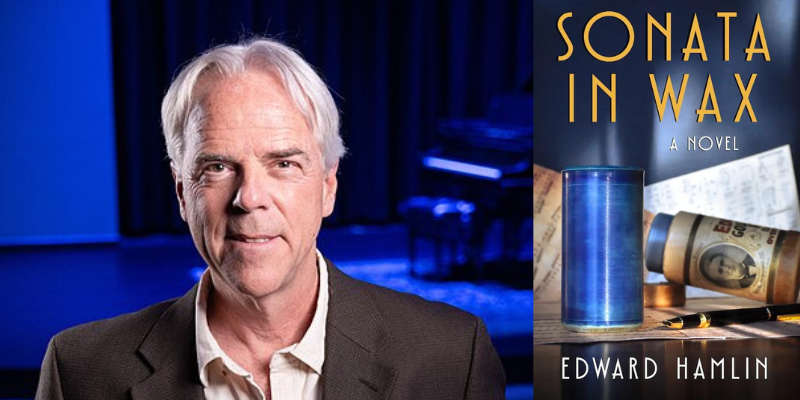
Edward Hamlin on Authorship
In Conversation with Mitzi Rapkin on the First Draft Podcast
First Draft: A Dialogue of Writing is a weekly show featuring in-depth interviews with fiction, nonfiction, essay writers, and poets, highlighting the voices of writers as they discuss their work, their craft, and the literary arts. Hosted by Mitzi Rapkin, First Draft celebrates creative writing and the individuals who are dedicated to bringing their carefully chosen words to print as well as the impact writers have on the world we live in.
In this episode, Mitzi talks to Edward Hamlin about his new novel, Sonata in Wax.
Subscribe and download the episode, wherever you get your podcasts!
From the episode:
Mitzi Rapkin: In Sonata in Wax there is a question of authorship as one character, Ben, inadvertently claims he wrote a piece of music he did not. He never said he wrote it but those around him think he did and he never corrected them. So, Ben knew that the time would finally come, it was inevitable where the jig was up. But what he found was great, other worldly inspiration from the piece he claimed he wrote and from the pressure of the lie to create music of his own something that he hadn’t done in decades. Maybe it speaks to how certain pressures can actually open something in us and how something lost within ourselves can be found, but also what lies within when we just have the moment to find that.
Edward Hamlin: That’s really well said. I mean, I don’t need to elevate this in some highfalutin way, but I think what I see as the moral core of the book, or the moral conflict in the book, is that Ben has to figure out what is the right way to make this right. You know, there are 1000 things he could do. And, you know, for a lot of the book, he feels like, I’m going to have to go public and just confess this in the most public possible way. You know, he has to figure out in the first case, who’s the abused party here, you know, who’s the affected party? He’s got to figure out, you know, who have I harmed through this lie? And of course, that turns out to be the real composer, then he needs to figure out, how can I make this right? And, to his surprise, and my surprise, frankly, as the writer, it’s through creative process, it’s through composing, it’s through art that he finds the right way for him to make up for this and to expiate the lie. And he doesn’t see that coming. But I mean, I think his best response to the lie is to be clear and honest and public about the real provenance of the piece. But also, to do an homage to the real composer, he goes the extra step. And he doesn’t see it coming, he doesn’t really set out to do that. But through creating art, creating music, he’s able to kind of square the moral circle, you know, he’s able to kind of make good on the on the mistake that he made. And that I think, is to me, you know, if I were reading this book naively, if I hadn’t written it, if I were reading it, to me that would be maybe the most interesting part of the book, is how does Ben think his way and feel his way and ultimately create his way to a solution to this mistake that he’s made?
***
Edward Hamlin is the author of the short story collection Night in Erg Chebbi: Stories and the novel Sonata in Wax. His writing has been published widely and recognized with a number of awards, including the Nelson Algren Award and the Iowa Short Fiction Award. He lives in Colorado.
First Draft: A Dialogue on Writing
First Draft: A Dialogue on Writing is a literary podcast produced and hosted by Mitzi Rapkin. Each episode features an in-depth interview with a fiction, non-fiction, essay, or poetry writer. The show is equal parts investigation into the craft of writing and conversation about the topics of an author’s work.



















